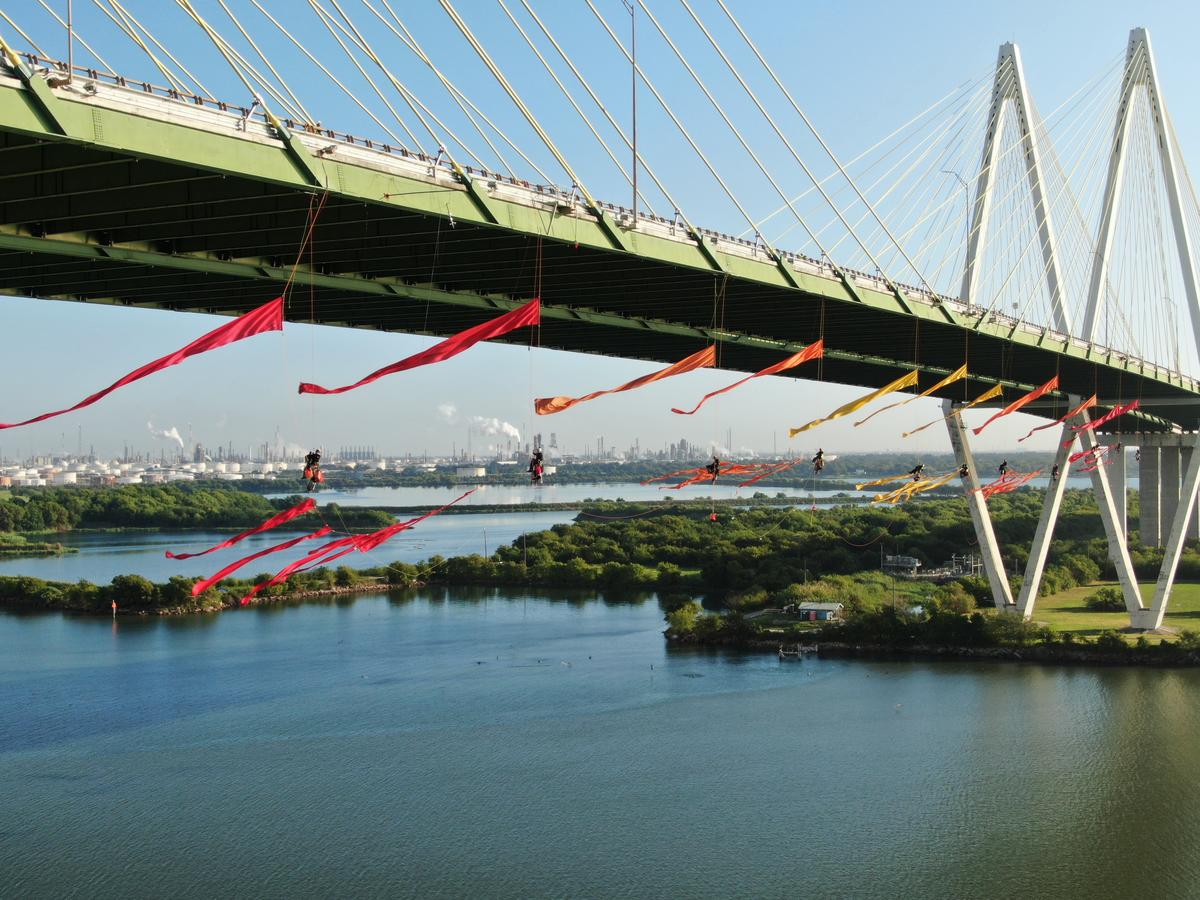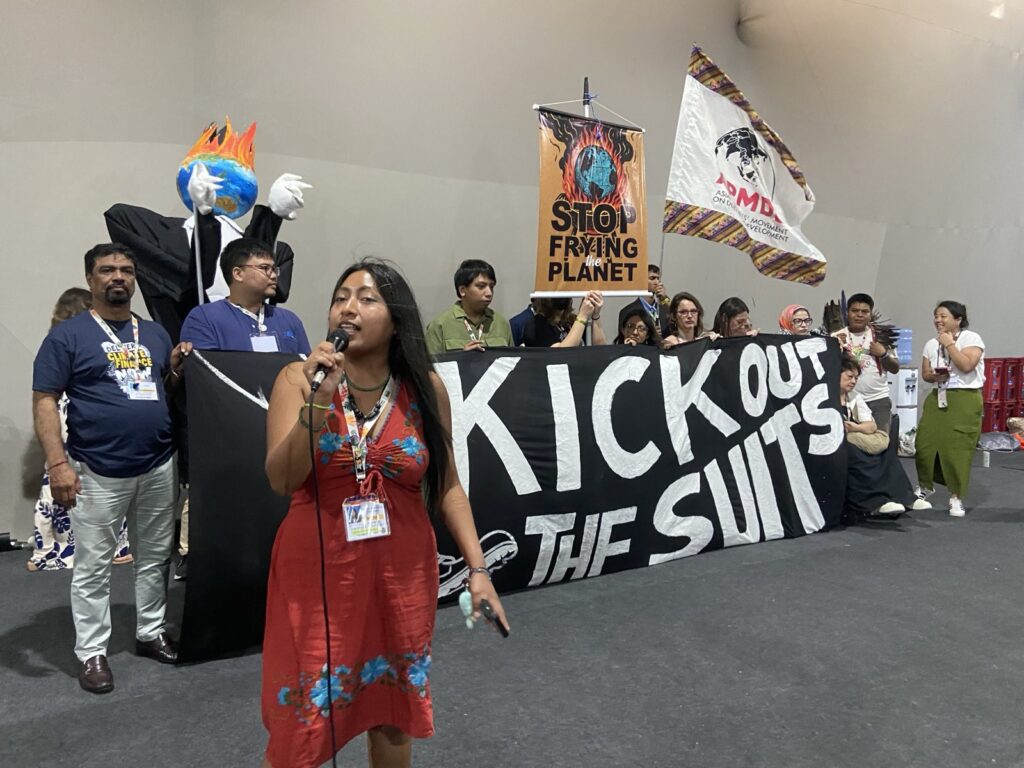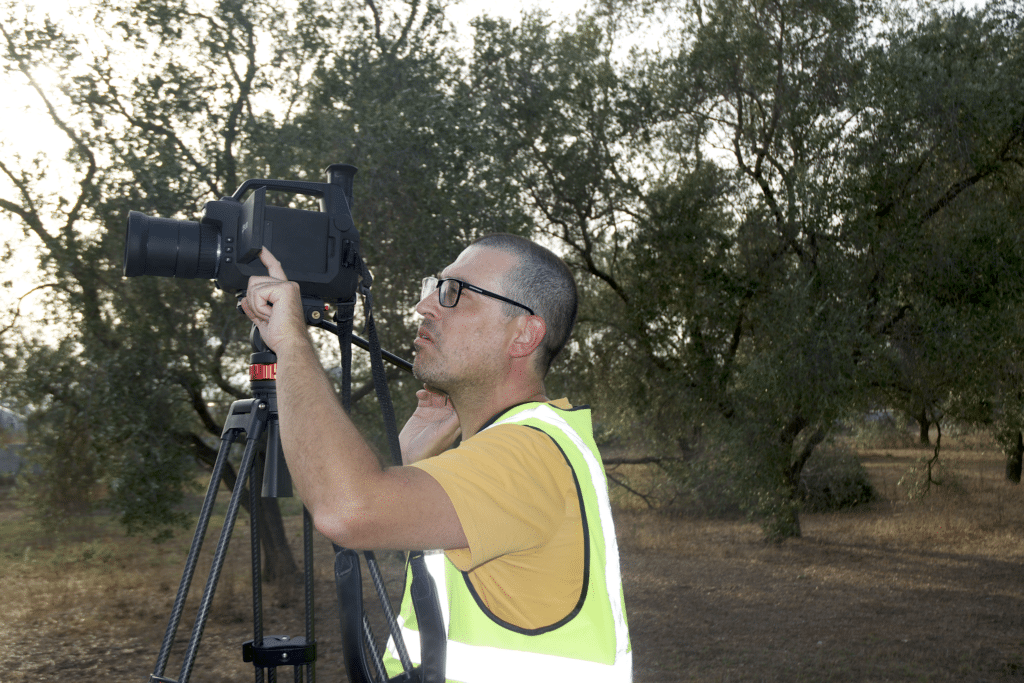Today, as Democratic presidential contenders arrive for a major debate this evening in Houston, 22 activists from Greenpeace sought to shut down what they called the country’s “largest fossil fuel thoroughfare,” the Houston Ship Channel, by rappelling from the Fred Hartman Bridge in Baytown, Texas.
Greenpeace said the rappellers plan to stay in place for 24 hours, through tonight’s Democratic debates.
“We can either take bold action to combat the climate crisis today or suffer the consequences — more floods, more mega-storms, and more fires — for years to come,” Annie Leonard, the executive director of Greenpeace USA, said in a statement on the action.
Greenpeace says it’s blockaded the Houston Ship Canal https://t.co/8cvsKw29HI #OOTT
— Helen Robertson (@HelenCRobertson) September 12, 2019
The group estimates that 700,000 barrels of oil a day travel through the blocked shipping lanes.
Activists unfurled colorful banners as they dangled above the shipping channel.
“I grew up in the East Texas Oil Field, a place where the oil industry touches everything. I know how much power oil executives have over our democracy,” Greenpeace USA activist Mike Herbert, one of the climbers, said in a statement. “That’s why I’m taking action to shut down the Houston Ship Channel, the largest fossil fuel thoroughfare in the country.”
Vehicular traffic has continued to flow across the bridge despite a heavy police presence, according to one witness, who adds that police had arrived quickly but were unable to prevent the 11 rappellers from descending.
A portion of the Houston Ship Channel is closed due to the twenty-two Greenpeace USA activists who are demonstrating at the Fred Hartman bridge to protest the use of fossil fuels ahead of the Democratic debate. https://t.co/b23tDVKCVS
(Greenpeace USA) pic.twitter.com/3E1cXoc9u3
— Houston Chronicle (@HoustonChron) September 12, 2019
“A portion of the traffic in the Ship Channel has stopped from Light 102A to 104 due to the demonstration,” KHOU news in Houston reported this morning. An observer on the scene said that ship traffic had backed up to Galveston, Texas, in the afternoon, roughly eight hours after the protest began.
Lisa Ashley, a spokesperson for the Port of Houston told The Hill that the impacts from the delays were not expected to be “devestating” because ship schedules are kept flexible since delays can arise for a broad variety of reasons, adding that port officials “respect the value of free speech, as long as it’s peaceful and legal.”
In June, the U.S. briefly became the world’s largest oil exporter, surging past Saudi Arabia, according to an International Energy Agency (IEA) report released today.
“Booming shale production has allowed the U.S. to close in on, and briefly overtake, Saudi Arabia as the world’s top oil exporter … in June, after crude exports surged above 3 million barrels per day (bpd),” the agency wrote in its monthly report. Saudi Arabia has since reclaimed the top slot, with the IEA noting hurricanes and international trade disputes had helped slow U.S. exports.
Much of that exported oil flowed through the Houston Ship Channel, which also borders one of the world’s largest petrochemical corridors.
“Groups like t.e.j.a.s. (Texas Environmental Justice Advocacy Services) are building power with fenceline communities, fighting to prevent dangerous petrochemical disasters and leaks — while holding corporations accountable for them, and famously organizing ‘Toxic Tours,’” Greenpeace wrote in a September 10 post. “Democratic candidates might learn a thing or two from these tours about fighting for environmental justice.”
UPDATE: Houston Ship Channel is CLOSED as nearly a dozen @greenpeaceusa protestors dangle themselves off the Texas 146 Fred Hartman Bridge, per @HCSOTexas. Protest expected to last until at least Friday morning; charges likely #hounews
MORE: https://t.co/31aqTNn37B w/ @cephira pic.twitter.com/IvnrL34g3y
— Jay R. Jordan (@JayRJordan) September 12, 2019
In July, an explosion at ExxonMobil’s Baytown, Texas, petrochemical plant injured 66 workers and led to at least three lawsuits, as DeSmog previously reported. The explosion was the second at ExxonMobil’s Baytown site this year.
During last week’s climate town hall, which was aired for seven hours by CNN, the same 10 Democratic candidates each faced 40 minutes of questions from attendees and CNN reporters. While candidates like Joe Biden, under fire for his ties to fossil fuel companies and the Obama administration’s promotion of fossil fuel exports, emphasized during that town hall that the U.S. is responsible for just 15 percent of global carbon emissions, that figure does not account for U.S.-exported fossil fuels.
In 2015, President Obama lifted a four-decade long ban on exporting U.S. crude oil and his administration actively promoted exports of liquefied natural gas and other fossil fuels despite their impacts on the climate.
President Trump has falsely claimed that climate change is a “hoax” and worked to roll back regulatory efforts to curb the fossil fuel industry’s climate and other environmental impacts.
UPDATED 9/12/2019: This piece has been updated at 5:30 PM EDT.
Main image: Greenpeace activists rappel off of the Fred Hartman Bridge in Baytown, Texas, to protest fossil fuel exports along the Houston Ship Channel. Credit: Greenpeace
Subscribe to our newsletter
Stay up to date with DeSmog news and alerts






